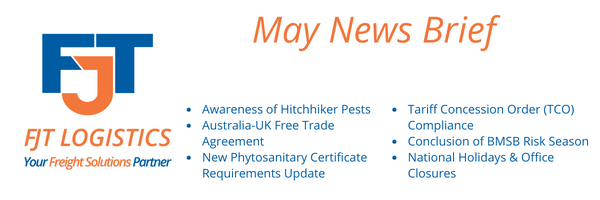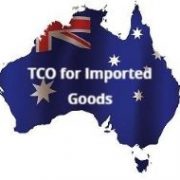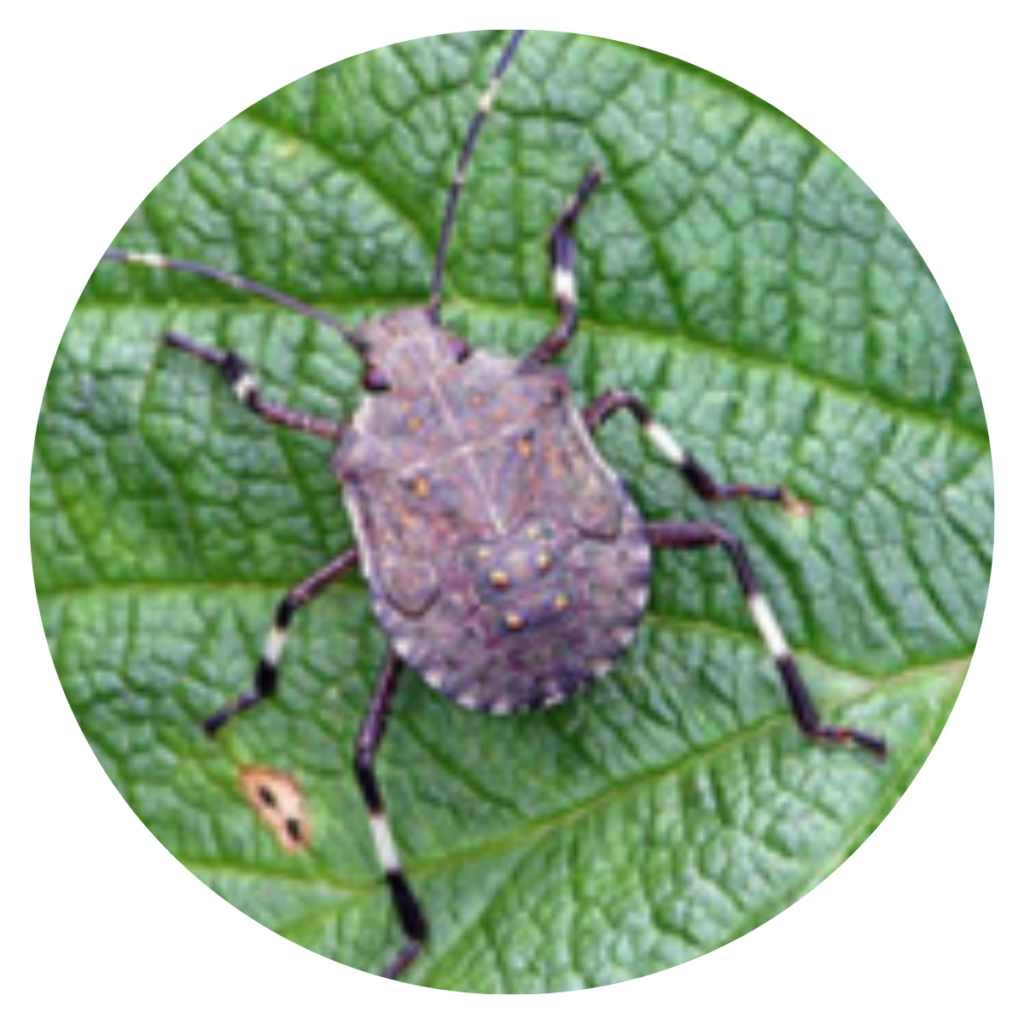

Welcome to our May News Brief
Dear Valued Customer
In delivering the Federal Budget on 9 May 2023, the Federal Treasurer spoke of the challenges the global economy is facing, and how these are affecting Australia.
As expected though, the main focus by the Government were measures to help with the high cost of living pressures designed to assist the most vulnerable in the community.
Parts of the budget were relevant to Australia’s supply chain and logistics industry. There will be improvements made to the biosecurity system with additional expenditure to simplify processing and minimise delays at the border, a new cost recovery charge on low value ($1000 or less) goods , funding for a modern simplified trade system, more money given to the ATO for increased GST compliance, increased tobacco excise and excise-equivalent customs duty, additional funding to combat Illegal tobacco imports, additional resources to support the implementation of the Australia-United Kingdom Free Trade Agreement (AUKFTA), and provision for the Australia European Union Free Trade Agreement (AEUFTA) negotiations which are still ongoing.
Undoubtably, the main concern of importers, forwarders and brokers will be that increased cost recovery charges result in improved service levels and more timely clearance of goods by the border agencies.
Although the government predicts the economy will grow while they expect inflation to fall next year, we should continue to remain cautious in the face of global uncertainty, persistent inflation and higher interest rates, which are threatening to slow our economy.
Sam Curro
Executive Business Manager – Oceania

Awareness Of
Hitchhiker Pests
To help raise awareness of the risk of hitchhiker pests, the Department of Agriculture, Fisheries and Forestry (DAFF) have launched a new website providing information on key hitchhiker pests, the risks they pose, how to identify them, where to look, and what to do if you suspect you have detected one
• There is an increase in hitchhiker pest movement globally, and sharing this information with your relevant stakeholders will help to protect Australia from this growing risk which could cost billions of dollars and cause serious damage to our industries, environment, health and lifestyle
...

Australia-UK Free
Trade Agreement
It was announced recently that the start date of the Australia-UK FTA (A-UKFTA) will be 31 May 2023. It has now completed its parliamentary processes in the UK, after we completed our parliamentary process at the end of last year
• With the entry into force of this comprehensive agreement, there will be no tariffs on over 99 per cent of Australian goods exports to the UK opening up new export opportunities. Additionally, savings of approximately $200 million a year will be made as tariffs on imports from the UK are eliminated
• Wine Australia has estimated that the tariff elimination represents a saving of approximately AUD $43million per year for the Australian wine sector. The UK remain an incredibly important market for Australian wines. It is our largest export market by volume at 222 million litres and second largest by value at AU$395 million to September 2022
• Under the FTA, both countries will also offer enhanced opportunities to live and work temporarily in each other’s country...

New Phytosanitary Certificate Requirements Update
The Department of Agriculture, Fisheries & Forestry (DAFF) has issued further information to clarify Australia’s acceptance of Phytosanitary Certificates
• Phytosanitary certificates that do not have a pen-inked signature, printed signature, wet stamp or printed stamp must meet certain criteria
• The implementation date for the changes has been extended to 1 June 2023
• There is no change to electronic certification or ePhyto/eCert between Australia and New Zealand for use in import clearance...

Tariff Concession Order (TCO) Compliance
Tariff Concession Orders (TCOs) are a revenue concession that exists for imported goods where there is no Australian manufacture of goods that are substitutable for imported goods
• In order to claim a TCO in accordance with Australian law, imported goods must firstly be classifiable to the tariff classification to which the TCO is keyed, and must precisely meet the description of the goods in the TCO. The Australian Border Force (ABF) undertakes both pre and post clearance compliance checks on TCO usage and penalties can apply if goods do not meet the above mentioned requirements...
On 1 May 2023, the 2022-23 BMSB risk season ended. Goods shipped on board or vessels departing from BMSB target risk countries on or after 1 May 2023, will no longer be subject to the BMSB seasonal measures on arrival
- Target high risk goods manufactured in or shipped from target risk countries, that are shipped on board vessels between 1 September 2022 and 30 April 2023 are subject to BMSB measures on arrival, regardless of the arrival date…

